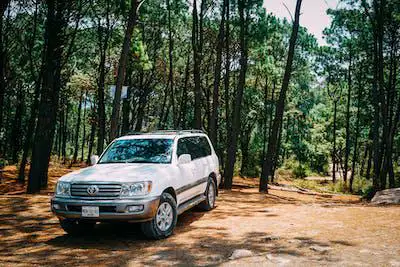Fuel Efficiency: The Guzzling Elephant in the Room
Let's address the elephant in the room - SUVs are gas guzzlers. Their larger size and heavier weight translate to lower fuel economy compared to sedans or hatchbacks. This translates to frequent trips to the pump, especially with rising fuel prices. The EPA's average fuel economy for SUVs is around 23 mpg combined, while some luxury models barely manage 15 mpg in the city. Consider your annual mileage and gas prices in your area to estimate the potential dent in your finances. For instance, driving an SUV that gets 18 mpg and clocking 15,000 miles annually with gas at $3.50 per gallon could cost you over $3,500 in fuel alone!
Insurance: A Heftier Premium for a Heftier Vehicle
SUVs, owing to their size and perceived value, attract higher insurance premiums compared to smaller cars. Insurance companies consider factors like repair costs, theft rates, and accident statistics when calculating premiums. So, prepare to shell out more for comprehensive and collision coverage, especially if you're a young driver or have a less-than-stellar driving record.
Maintenance and Repairs: When Bigger Isn't Always Better
The complexity and size of SUVs translate to potentially higher maintenance and repair costs. Their hefty engines require specialized parts and labor, making routine maintenance like oil changes and tire replacements more expensive. Additionally, repairs for issues like suspension problems, bodywork damage, or even replacing those fancy panoramic sunroofs can burn a significant hole in your pocket. Remember, bigger isn't always better when it comes to repair bills.
Depreciation: The Value That Vanishes Like Smoke
SUVs, like most vehicles, depreciate rapidly. This means their resale value plummets over time. Studies suggest that SUVs lose an average of 15% of their value annually in the first three years, compared to 10% for sedans. So, if you're planning to sell your SUV within a few years, be prepared for a significantly lower return on your investment.
Hidden Fees and Taxes: The Sting in the Tail
The sticker price is just the tip of the iceberg. Additional fees like destination and delivery charges, documentation fees, and advertising fees can add hundreds, even thousands, to the final cost. Moreover, sales tax based on the SUV's full price can be a hefty chunk of change. Don't forget registration fees and annual property taxes that vary depending on your location.
Beyond the Financials: Consider Your Lifestyle
While the financial aspects are crucial, consider if an SUV truly aligns with your lifestyle. Do you really need the extra cargo space or off-road capabilities? Will its size be a hindrance in tight parking spaces or city commutes? SUVs might not be the most practical choice for urban dwellers or those who prioritize fuel efficiency. Be honest with yourself about your needs and driving habits before succumbing to the SUV's charm.
Exploring Alternatives: A World Beyond SUVs
Before committing to an SUV, explore alternative options. Station wagons, hatchbacks, and even some sedans offer ample cargo space and practicality without the drawbacks of an SUV. Consider fuel-efficient hybrids or electric vehicles if environmental consciousness is a priority. Remember, the perfect car is the one that fits your needs, budget, and lifestyle, not just your desire for a trendy SUV.
Making an Informed Choice: The Key to Responsible SUV Ownership
By understanding the hidden costs associated with SUVs, you can make an informed decision about whether this purchase aligns with your financial reality. Weigh the benefits against the drawbacks, considering your lifestyle and needs. Remember, responsible car ownership starts with making smart choices based on facts, not just fleeting desires. So, buckle up, do your research, and navigate the road to car ownership with your eyes wide open!
In Conclusion:
Owning an SUV comes with a plethora of hidden costs that can significantly impact your finances. From guzzling gas to hefty insurance premiums and potential repair bills, the allure of these spacious vehicles can come at a hefty price.

